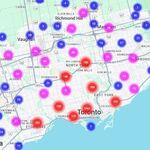DSC
Superstar
Member Bio
- Joined
- Jan 13, 2008
- Messages
- 19,665
- Reaction score
- 28,217
- Location
- St Lawrence Market Area
Yes, US and Brazil (and UK) have certainly handled covid less well than most but I suggest every country (with the benefit of hindsight) could have done better. In Canada, the Feds should gave closed the borders (or insisted on testing) much sooner, governments )Federal and Provincial) going back decades should have ensured we maintained some vaccine production facilities and that adequate stock-piles of ppe were maintained . Ontario should have shut down much faster and opened up much slower, the situation on LTC was (and is) a disgrace and the mixed messaging was (and is) certainly not helping. All in all Canada has done pretty well but there are lots of lessons that should have been learned. I guess we will not know how well until the NEXT time!Brazil and US are practically the failed-states of pandemic - everyone with half a sane government would look good compared to them, but that doesn't tell us anything about where we went wrong.





